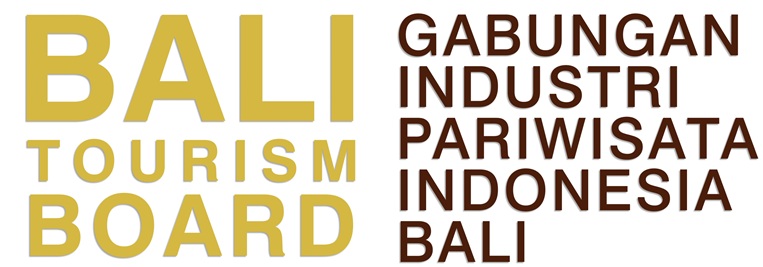Bali Women in Tourism Summit & Research
With Distinguished Keynote Speakers

Ms. Ida Ayu Indah Yustikarini
Bali Government Tourism Authority
Head Tourism Marketing

Prof. Diena Mutiara Lemy
Chairwoman HILDIKTIPARI - Pelita Harapan University UPH Jakarta

Dr. Putu Diah Sastri Pitanatri
Head of Research Centre
Bali Tourism Polytechnic - Ministry of Tourism RI

Dr. Ida Ayu Oka Purnama Wati
Founder, Owner BROS Hospital Bali - Women Centre Bali Medical Tourism Association

Dr. Diah Permana Tirtawati
Cofounder & DOM Melali MICE

Ms. Inda Trimafo Yudha
Founder Jungle Gold Bali Chocolate. Chairwomen Bali Themepark Association

Ms. Tracey Groeneveld
Founder Bali Health Hub

Ms. Budi Shantika
Tourism Lecture at Universitas Pendidikan Nasional

Ms. Janet DeNeefe
Director Ubud
Writers & Readers Festival

Dr. Putu Sucita Yanthy
Lecture at Faculty of Tourism, Social Culture Tourism

Ms. Ratna Soebrata
Moderator
Secretary General, PATA Bali & Nusa Tenggara Chapter

Dr. Ni Made Eka Mahadewi
Chairwoman
Assoc Prof. Bali Tourism Polytechnic. Ministry of Tourism
PowerPoints
Contact Bali Women in Tourism or Submit Article






Bali tourism is a win for women
Dr. Reza Soltani
Bali tourism is a win for women and help alleviate poverty. Growth of household income benefits families and delay child marriage, increased spending on children’s education, and a reduction in gender-based violence. All of which help to foster gender equality.
Women help preserves Balinese culture and the environment. Balinese women are the drivers of sustainable tourism.
For example Community tourism and homestays where visitors have an authentic experience based on the traditional character of the destination. Cooking local specialty food, handicrafts and looking after guests typically falls to women in traditional Indonesian households. These extra business opportunities have enabled women to become secondary income-earners.
The Role of Balinese Women in Sustainable Tourism Development: Bridging the Gender Gap
Budi Shantika, Research Team
In Indonesia, the labour market is distinctly divided into primary and secondary sectors, with women making notable strides in education and employment. However, they continue to lag behind men in terms of representation and influence, particularly in the tourism sector. The challenges faced by women in this industry are deeply rooted in social norms, cultural traditions, and institutional barriers that limit their access to leadership roles and decision-making positions.
In Bali, the strong patriarchal culture further exacerbates gender disparities, often resulting in the exclusion of women from key decision-making roles in tourism development. Traditional beliefs dictate that men should assume leadership roles in business and governance, while women are expected to focus on domestic responsibilities and informal labor. This cultural dynamic not only limits women’s economic mobility but also restricts their ability to influence policies that impact their livelihoods and communities. Despite these barriers, Balinese women play an essential role in sustaining the local economy through their contributions to the tourism sector. They are heavily involved in maintaining traditional culinary practices, crafting handmade souvenirs, performing Balinese dances, and managing homestays that offer authentic cultural experiences to tourists. These roles, while vital, are often undervalued and do not translate into positions of authority within the industry.
Moreover, many women engage in tourism out of economic necessity rather than career aspirations. With limited access to formal employment opportunities, women frequently participate in small-scale entrepreneurial ventures such as running warungs (local eateries), selling traditional textiles, or offering guided cultural tours. While these activities provide financial support for their families, they rarely lead to upward mobility or greater influence in the broader tourism sector. The contributions of women to cultural and environmental preservation are equally significant. Through community-based initiatives, women play a central role in maintaining traditional Balinese rituals, temple ceremonies, and sustainable farming practices that align with the island’s Tri Hita Karana philosophy, which emphasizes harmony between humans, nature, and the divine. Their efforts not only sustain local customs but also enhance Bali’s appeal as a premier cultural tourism destination. However, these contributions are often overshadowed by male-dominated decision-making structures in government and business sectors.
A critical gap identified is the lack of representation of women in the planning and development of tourism strategies. Despite their integral role in the industry, women’s perspectives are frequently overlooked when policies are formulated. This exclusion perpetuates gender inequalities and prevents the tourism sector from fully benefiting from the insights and expertise that women bring to the table. To foster sustainable tourism practices and ensure equitable representation, it is imperative to amplify women’s involvement in tourism development. This can be achieved by creating platforms that encourage women’s participation in decision-making processes, providing leadership training programs, and recognizing their contributions through policy reforms that promote gender inclusivity. Government agencies, tourism stakeholders, and local communities must work together to dismantle structural barriers and support women in achieving greater economic and professional autonomy. Initiatives such as microfinance programs, business development workshops, and mentorship networks can help women entrepreneurs expand their tourism-related ventures and gain financial independence. Encouraging collaboration between male and female tourism professionals can also help shift societal attitudes towards a more inclusive and equitable industry.
While progress has been made in recognizing the role of women in Bali’s tourism sector, significant gender disparities persist. Addressing these disparities is essential not only for the empowerment of women but also for the sustainable development of tourism in Bali. By bridging the gender gap and ensuring that women have a voice in shaping the future of tourism, we can create a more inclusive, resilient, and sustainable industry that respects and preserves the island’s unique cultural and environmental heritage.
